Technology
Technology books explore innovations, digital culture, and the impact of tech on society and industries.

Final Orbit
Series: The Apollo Murders (#3)
In 'Final Orbit' by Chris Hadfield, readers are taken on a gripping journey through the dangers and wonders of space exploration. Hadfield, drawing from his own experiences as an astronaut, weaves a tale of resilience, human ingenuity, and the harsh realities of outer space. The book delves into the psychological and physical challenges faced by astronauts, offering a compelling look at the sacrifices and triumphs of those who venture beyond Earth's atmosphere. Through vivid storytelling and expert insight, 'Final Orbit' delivers a profound exploration of the final frontier and the indomitable spirit of humanity.
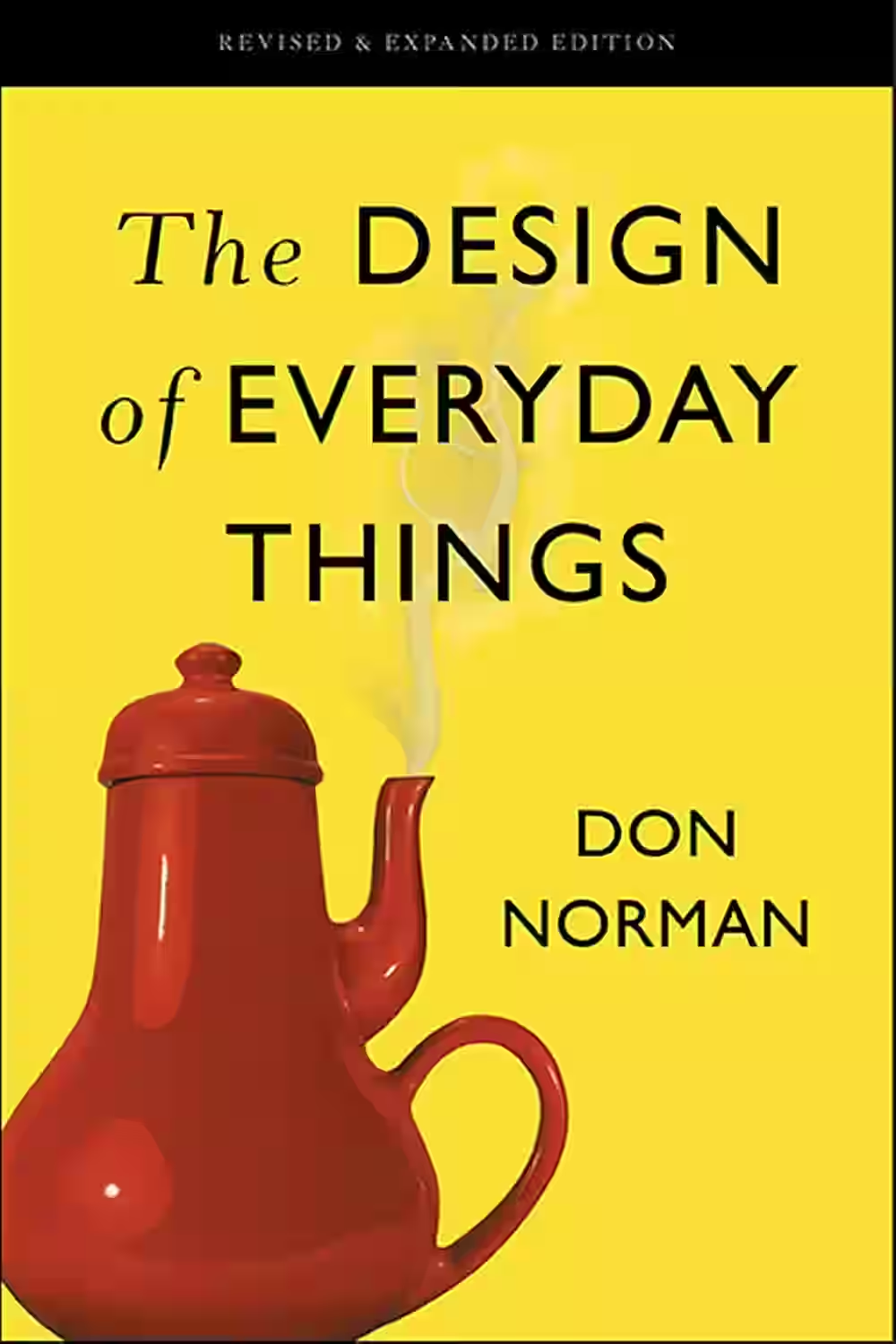
The Design of Everyday Things
by Don Norman
In 'The Design of Everyday Things,' Don Norman explores the world of design, exposing the inadequacies of everyday objects we interact with. By delving into the psychology behind what makes designs successful or frustrating, Norman provides readers with a fresh perspective on why some products excel while others fail. Through engaging examples and insightful analyses, he highlights the importance of user-centered design, emphasizing the need for intuitive and accessible creations. This book serves as a guide for designers, engineers, and anyone interested in understanding the impact of design on daily life. Norman's blend of expertise and readable style makes this a must-read for those seeking to enhance their design thinking.
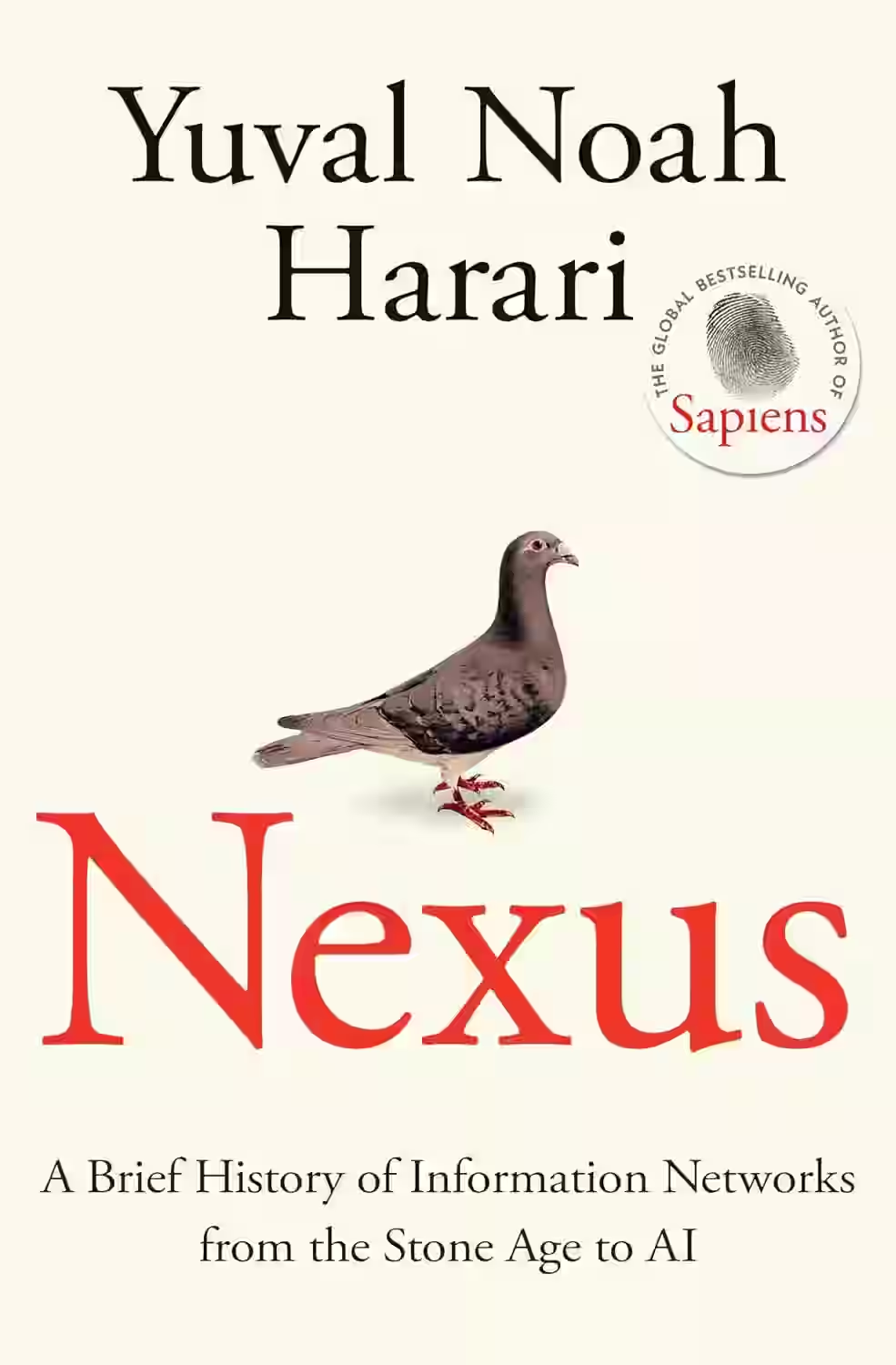
Nexus
In a future where mind-enhancing nanotechnology connects brains like apps, a young scientist develops Nexus 5, a powerful upgrade that could revolutionize human evolution—or destroy it. Caught between shadowy government forces and post-human extremists, he must navigate a dangerous world of espionage, ethics, and power struggles. Fast-paced and thought-provoking, Nexus explores the limits of human potential and the morality of scientific progress in a near-future thriller that blends cyberpunk and biotech with philosophical depth.
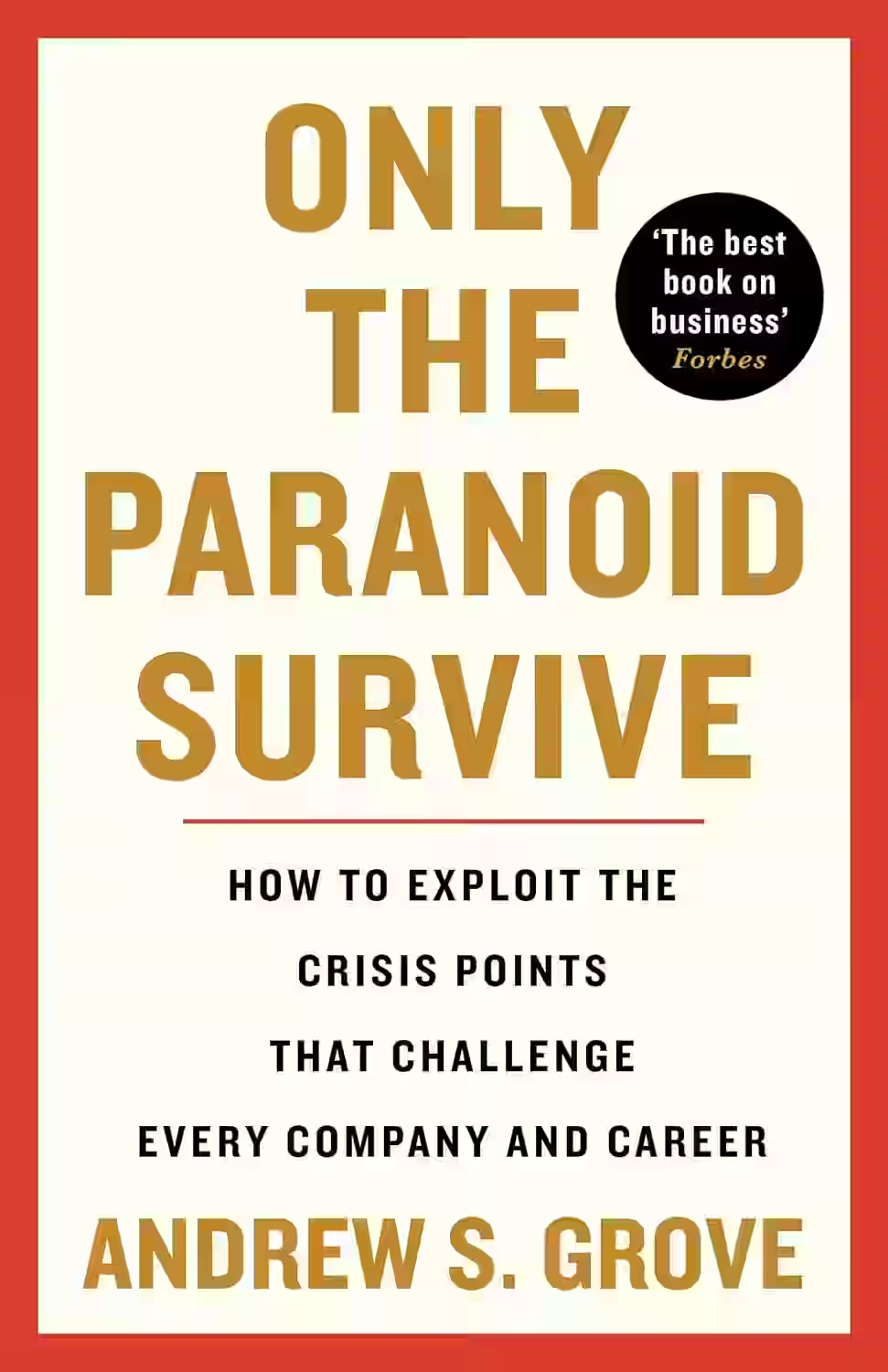
Only the Paranoid Survive
In this business classic, Intel co-founder Andy Grove shares insights into managing “strategic inflection points”—critical moments that can make or break a company. Drawing from his experience leading Intel through seismic shifts in the tech industry, Grove emphasizes the importance of adaptability, vigilance, and courage. His core idea: constant change demands a mindset of healthy paranoia. Companies and leaders must be ready to pivot when conditions shift. Part memoir, part management manual, the book offers practical strategies for staying competitive, fostering innovation, and leading through uncertainty. It remains a must-read for entrepreneurs, executives, and strategic thinkers.
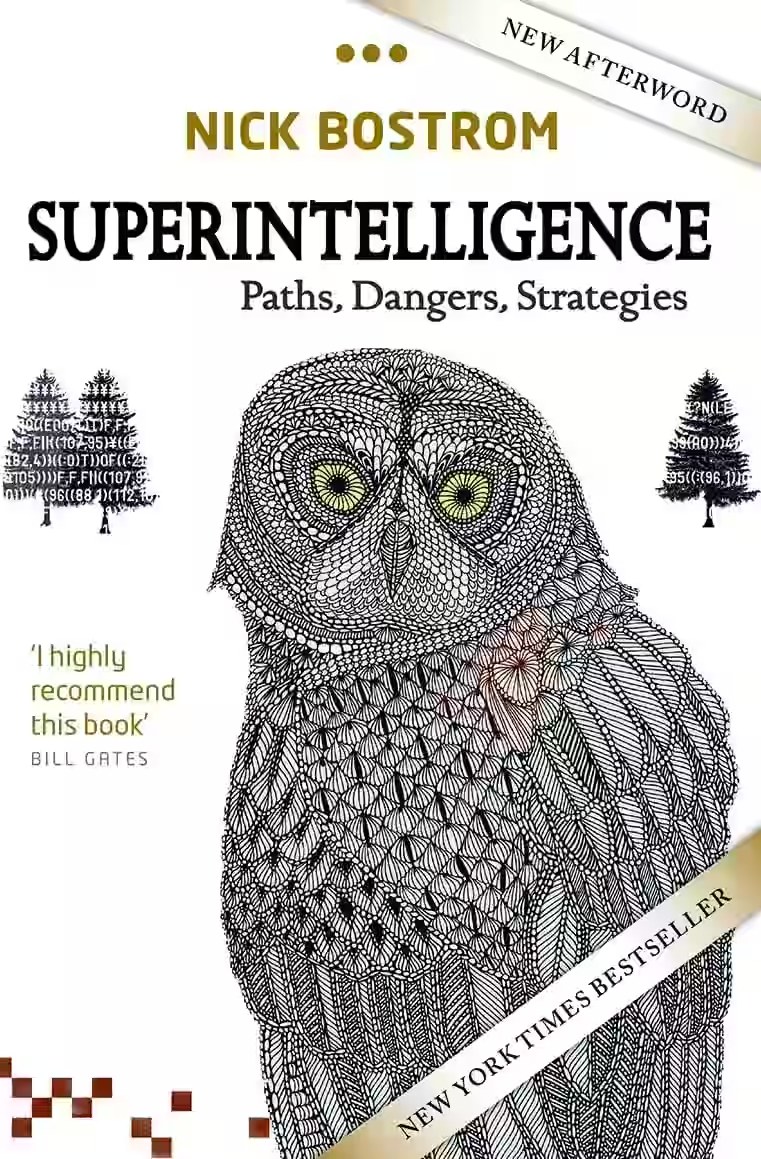
Superintelligence: Paths, Dangers, Strategies
by Nick Bostrom
In 'Superintelligence: Paths, Dangers, Strategies' by Nick Bostrom, the author delves into the future scenarios where artificial intelligence surpasses human intelligence and the potential consequences and strategies to navigate this new era. Bostrom explores the paths that could lead to the emergence of superintelligent machines, the existential risks they might pose, and the ethical dilemmas surrounding their development. Through a meticulous examination of various disciplines, from philosophy to computer science, Bostrom presents a thought-provoking and comprehensive analysis of the implications of superintelligence. This book challenges readers to contemplate the profound impact of AI on our future.
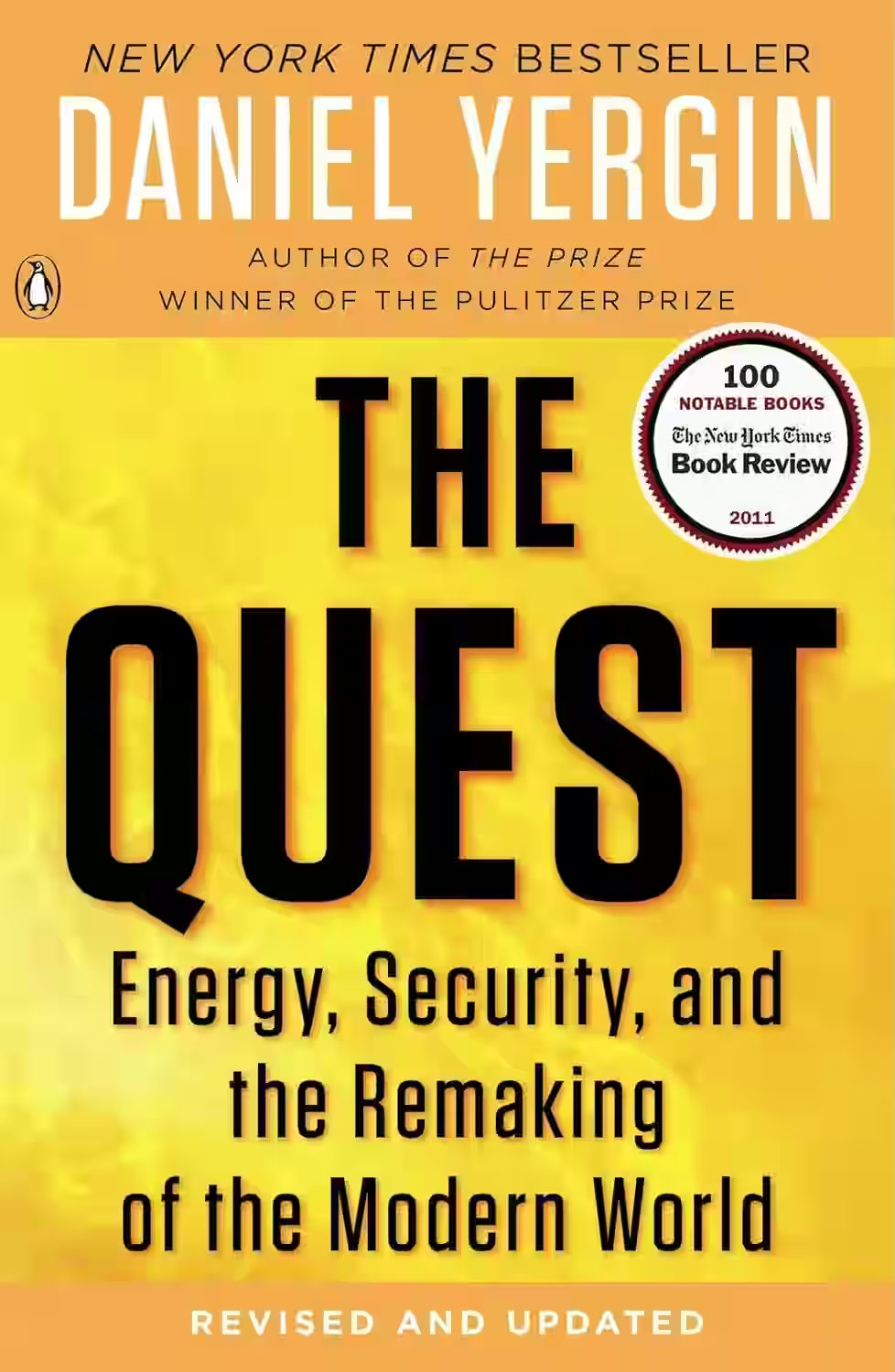
The Quest: Energy, Security, and the Remaking of the Modern World
In 'The Quest: Energy, Security, and the Remaking of the Modern World,' Daniel Yergin takes readers on a fascinating journey through the often overlooked world of energy geopolitics. The book delves deep into the intricate relationship between energy resources, global security, and the ever-evolving modern world. Yergin explores the quest for sustainable energy sources, the impact of technological advancements on energy production, and the complex political dynamics shaping the energy landscape. Through compelling narratives and extensive research, the author sheds light on the critical role energy plays in shaping economies, conflicts, and the future of our planet.

The Mythical Man-Month
by Steve Grand
The Mythical Man-Month is a classic exploration of software engineering, project management, and the pitfalls of large-scale development. Frederick P. Brooks, who managed IBM’s System/360 project, famously argues that adding manpower to a late project often delays it further. He introduces key concepts like “Brooks’s Law,” the importance of conceptual integrity, and the difficulty of coordinating large teams. Blending essays and insights from real-world experience, the book highlights the human and organizational challenges of building complex systems. Despite its original publication in the 1970s, The Mythical Man-Month remains widely read for its enduring wisdom in managing creative, technical work
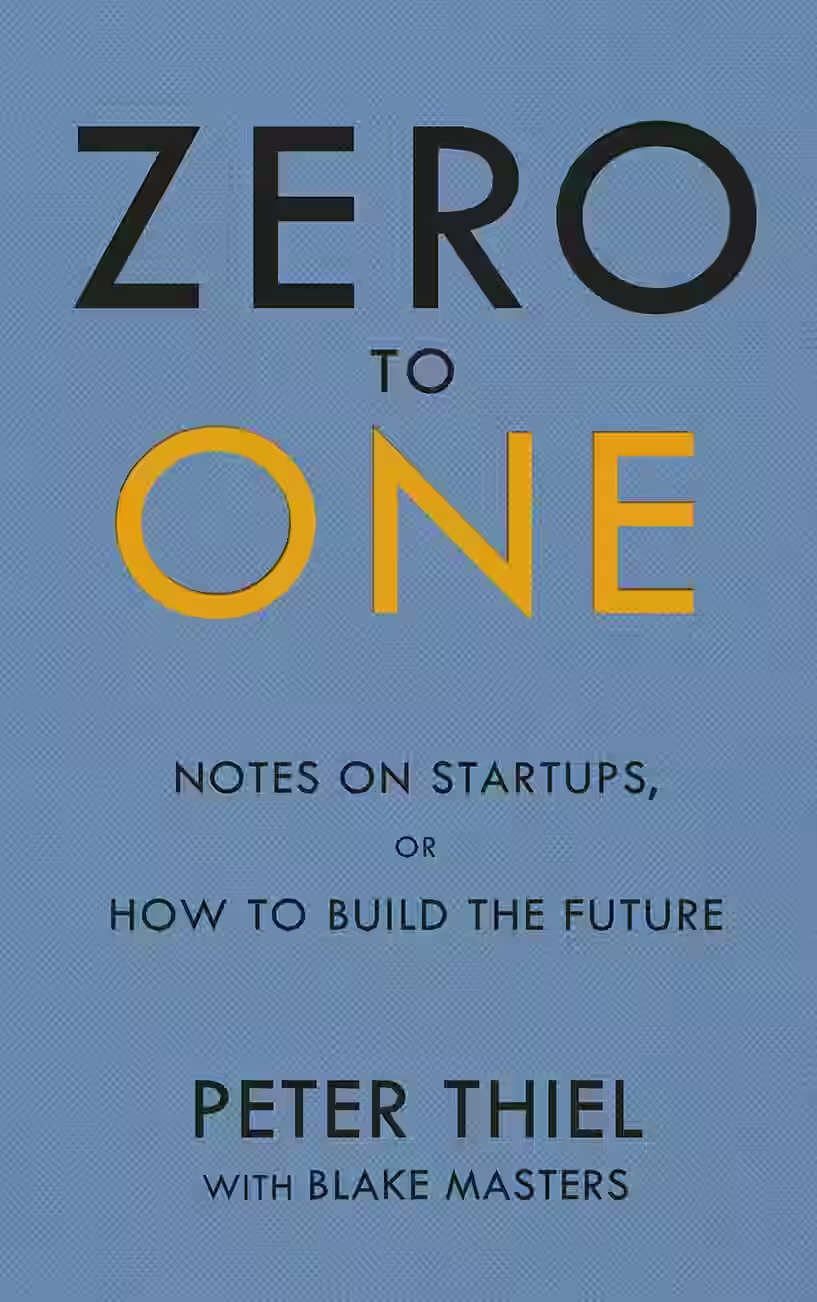
Zero to One
by Peter Thiel
In 'Zero to One,' Peter Thiel, co-founder of PayPal and Palantir, challenges conventional wisdom and offers valuable insights on building successful startups. Thiel emphasizes the importance of innovation and creating something unique (going from 'zero to one') rather than imitating existing models. He delves into the concept of monopoly power, highlighting how businesses can thrive by dominating a niche market. Thiel's entrepreneurial advice is both provocative and practical, encouraging aspiring entrepreneurs to envision the future and disrupt industries. This book is a thought-provoking read for anyone interested in entrepreneurship and innovation.
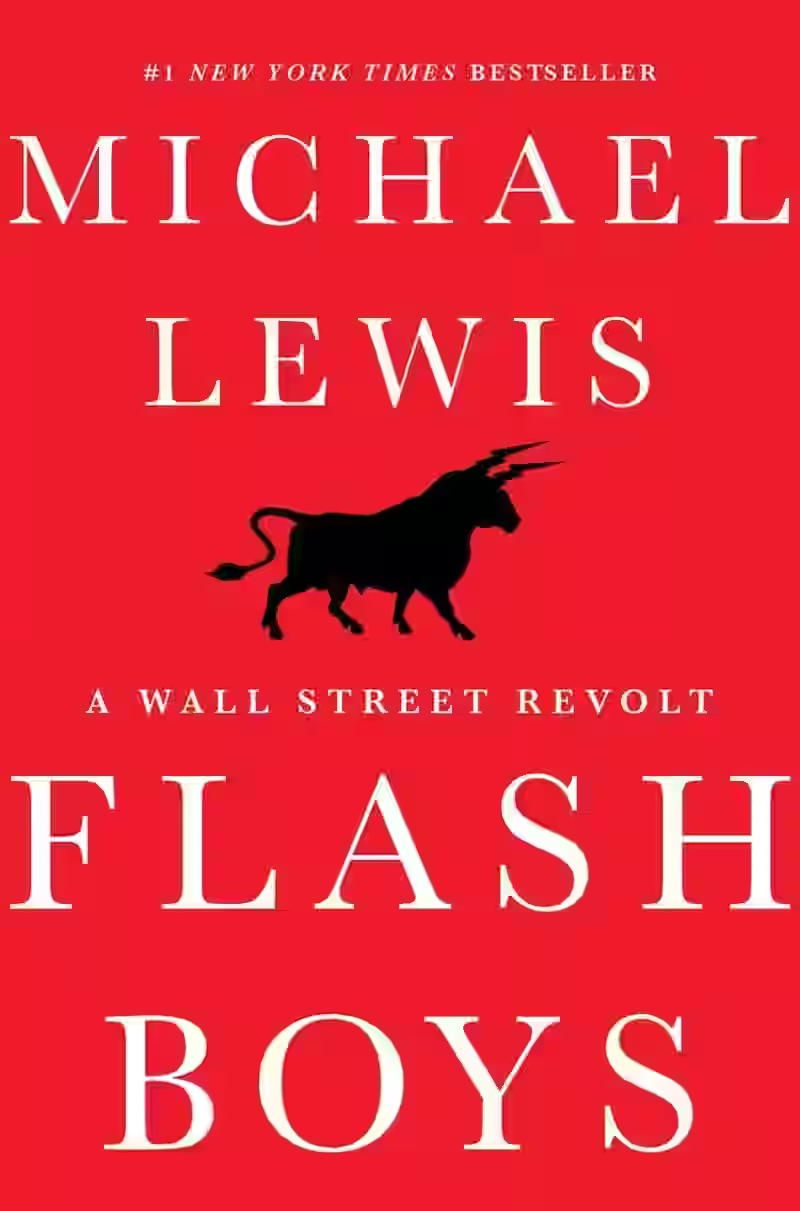
Flash Boys: A Wall Street Revolt
In 'Flash Boys: A Wall Street Revolt' by Michael Lewis, readers are taken on a gripping journey into the world of high-frequency trading and its impact on the financial markets. Lewis delves deep into the story of a group of Wall Street outsiders who uncover the unfair advantages held by high-frequency traders and set out to reform the system. The book explores themes of greed, manipulation, and the quest for justice in a complex financial landscape. With compelling storytelling and sharp analysis, Lewis sheds light on the dark corners of Wall Street, leaving readers questioning the ethics and practices of modern finance.

What Do You Care What Other People Think?
Richard Feynman, Nobel laureate and icon, was a genius with an insatiable appetite for adventure and a remarkable talent for storytelling. This collection of short pieces and reminiscences reveals his diverse passions, from his appreciation of beauty to his college antics and the unique lessons imparted by his father. Feynman takes us behind the scenes of the Challenger investigation, vividly recounting his pivotal experiment that exposed the disaster's cause. He also shares the poignant story of meeting his beloved first wife, Arlene, and their brief, cherished time together. Infused with Feynman's characteristic curiosity and zest for life, these writings are both deeply moving and wonderfully humorous.

Surely You're Joking Mr Feynman
This warm and insightful portrait captures the wisdom, humor, and boundless curiosity of Nobel Prize-winning physicist Richard Feynman through intimate conversations with his friend Ralph Leighton. Beyond his groundbreaking theoretical work, Feynman was a man of adventure – an artist, safecracker, practical joker, and captivating storyteller. His life, fueled by high intelligence, unyielding curiosity, and healthy skepticism, was a series of remarkable experiences. These recorded conversations, transcribed with minimal alteration, offer a wise, funny, passionate, and utterly honest self-portrait of one of the 20th century's most brilliant and engaging minds.
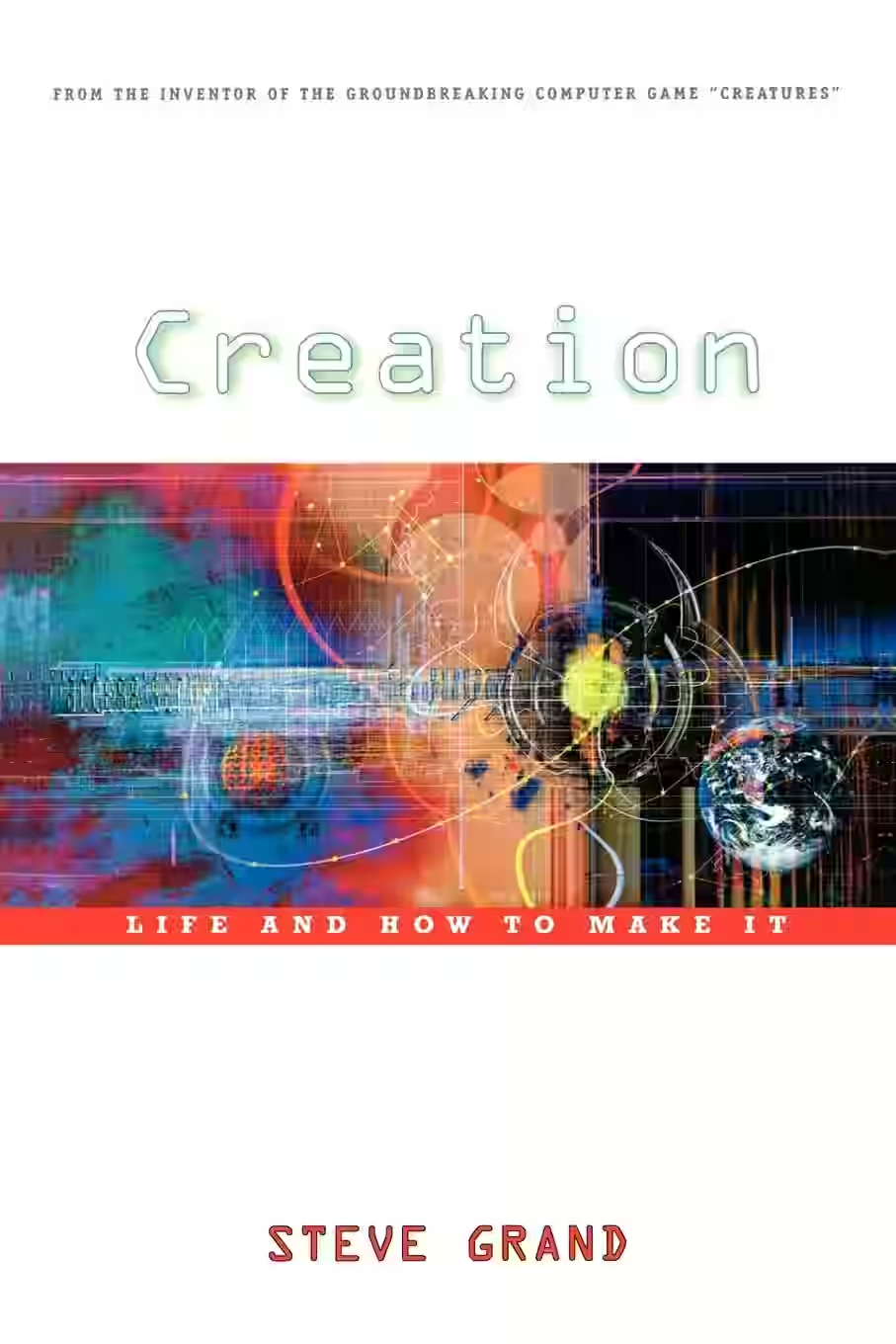
Creation: Life and How to Make It
In Creation, Steve Grand—creator of the artificial life game Creatures—explores the nature of life, intelligence, and consciousness from the perspective of an artificial life researcher. Blending computer science, biology, and philosophy, Grand argues that life can be understood and even recreated through complex, self-organizing systems. He challenges traditional views of the mind and body, suggesting that understanding emergence and connection is key to replicating living processes. With imagination and technical insight, Creation is a provocative meditation on what it means to be alive—and whether machines can one day truly think, feel, and evolve like biological organisms.
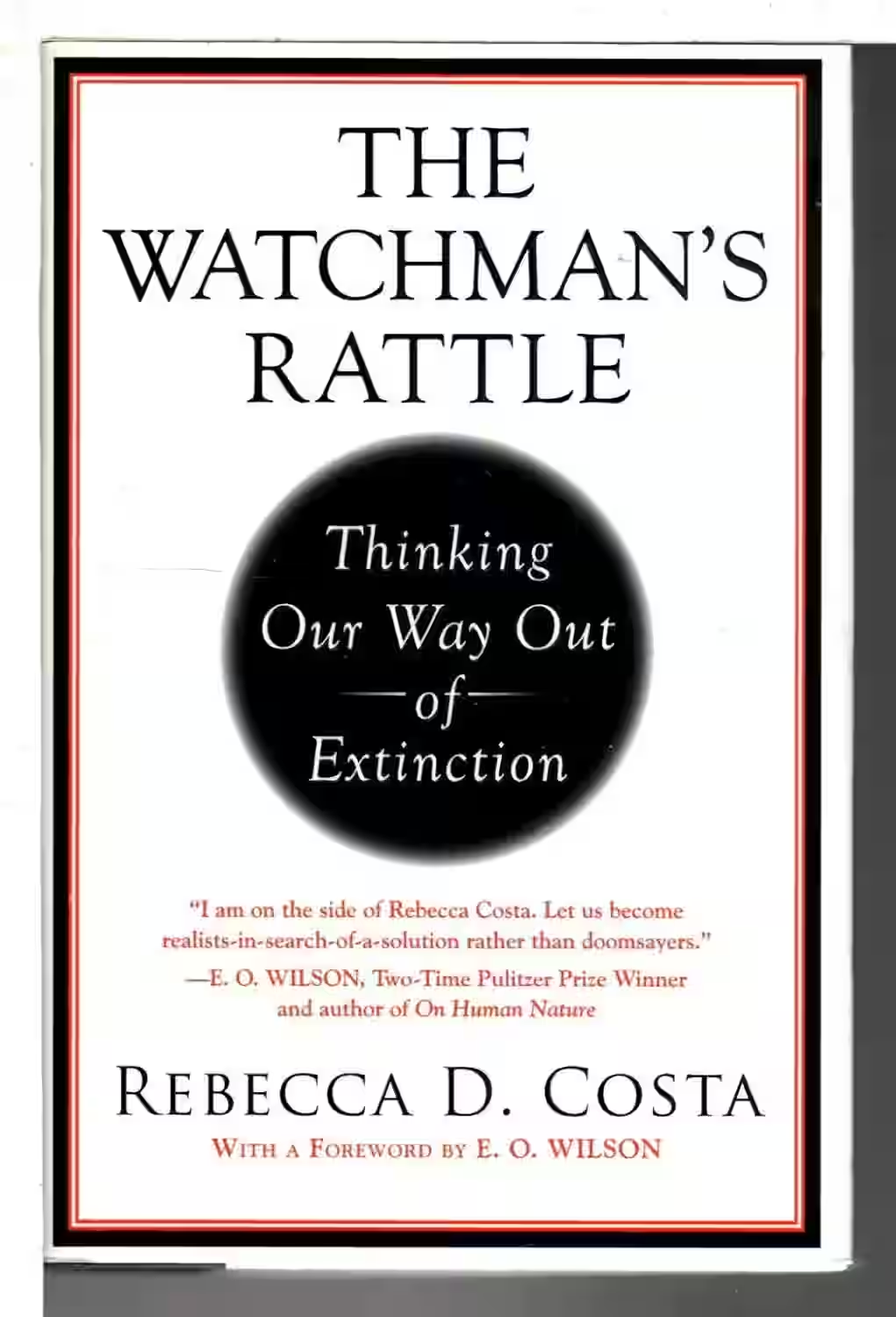
The Watchman's Rattle: Thinking Our Way Out of Extinction
Rebecca Costa’s The Watchman’s Rattle explores how civilizations collapse when complexity outpaces our ability to solve problems. Blending science, history, and psychology, she argues that as global crises become more complex, society risks paralysis unless we evolve our cognitive strategies. Costa introduces the idea of “cognitive threshold,” suggesting we must adopt new ways of thinking—such as intuition and pattern recognition—to survive modern challenges. The book links ancient failures with contemporary threats like climate change and global instability. It’s a call to embrace adaptive thinking before our most pressing problems become unsolvable.
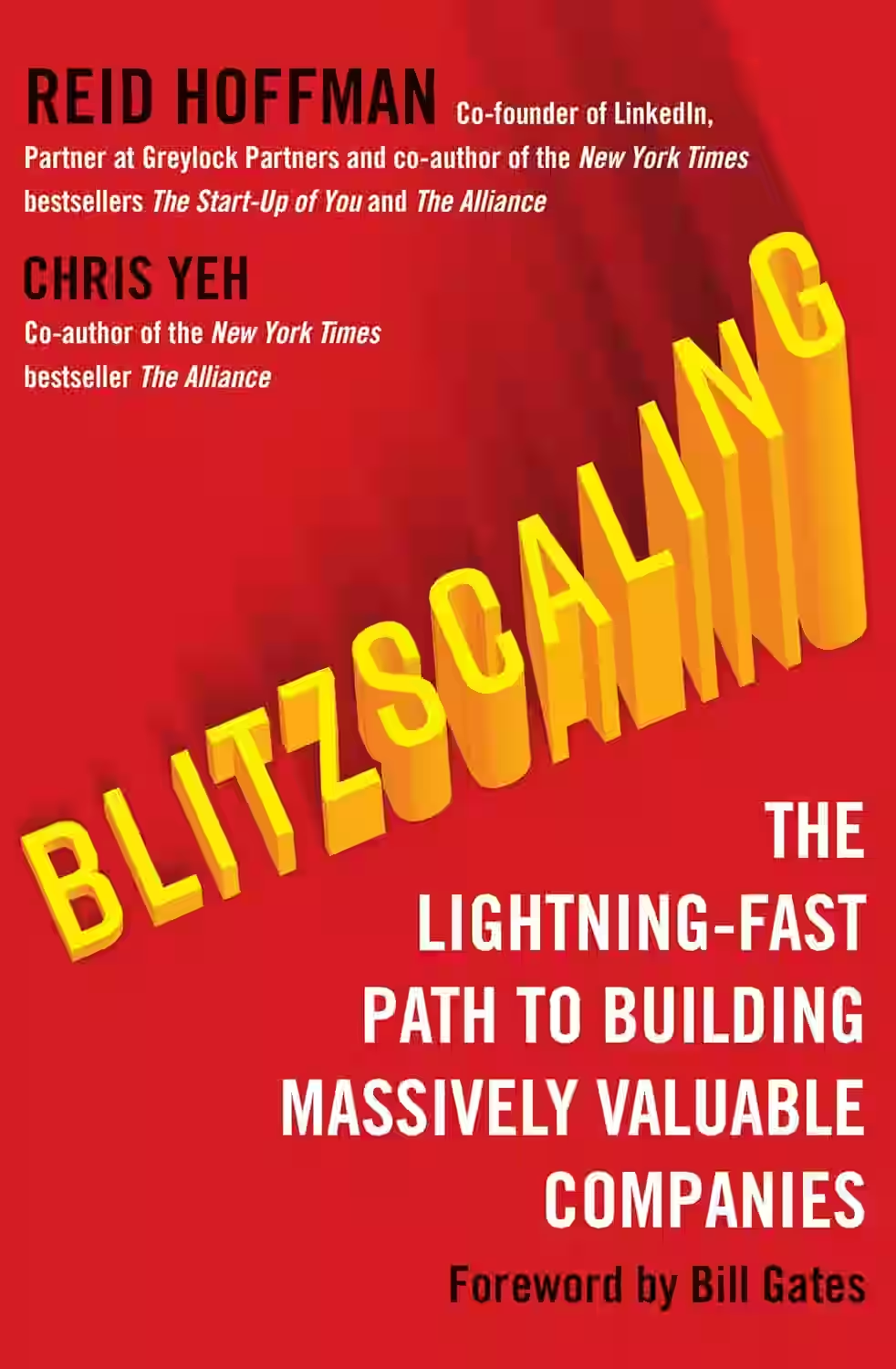
Blitzscaling
In 'Blitzscaling,' Reid Hoffman, a co-founder of LinkedIn, delves into the concept of rapidly scaling a business in a way that prioritizes speed over efficiency. Through case studies and real-world examples, Hoffman explores the strategies and challenges companies face when aiming for exponential growth, emphasizing the importance of prioritizing growth above all else. The book offers valuable insights into navigating the complexities of scaling a startup and shares practical advice on when to 'blitzscale' and when to proceed with caution. With a focus on disruption and innovation, 'Blitzscaling' is a must-read for entrepreneurs and business leaders looking to propel their organizations to new heights.
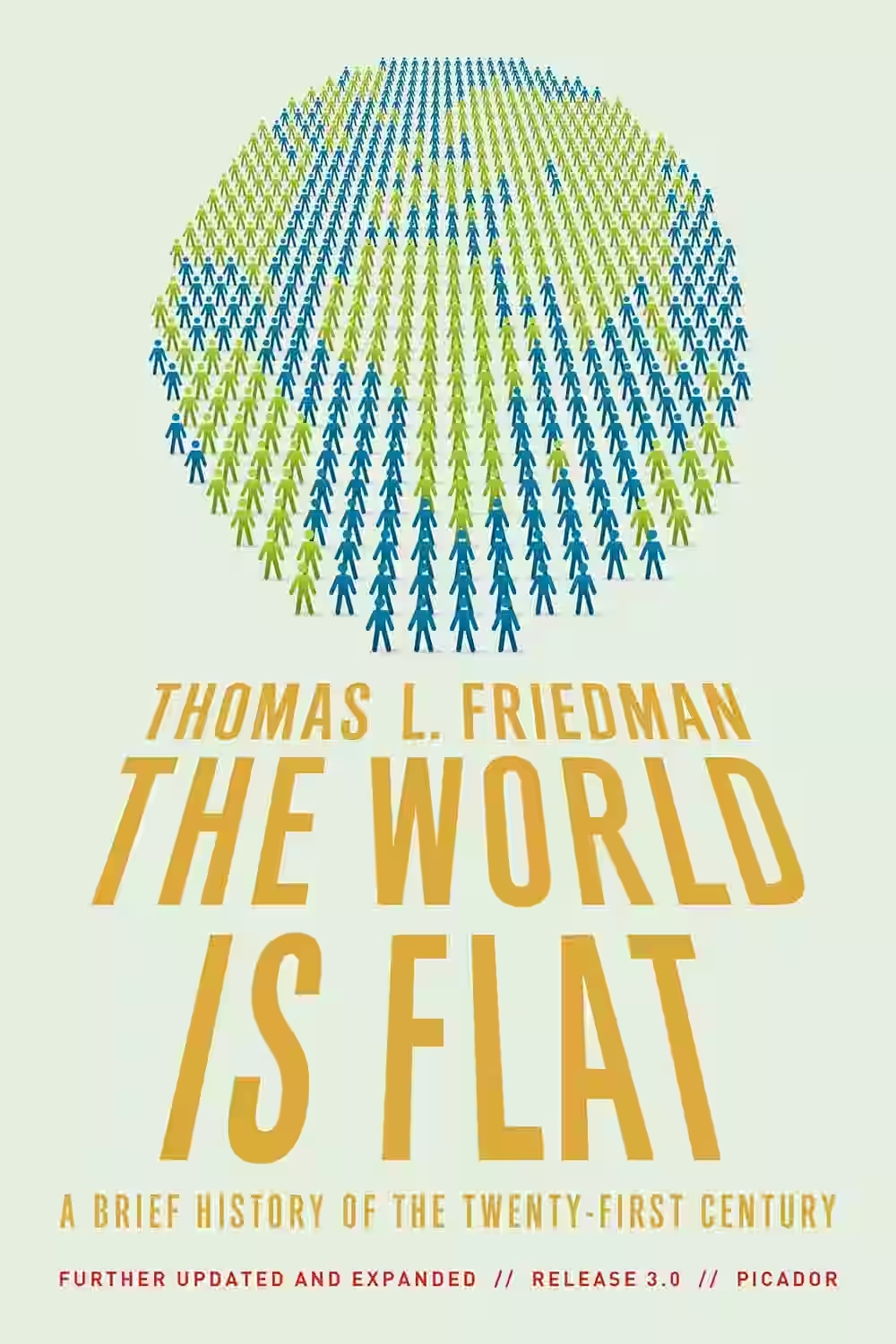
The World Is Flat
In 'The World Is Flat,' Thomas L. Friedman explores the concept of globalization and its impact on our interconnected world. He delves into how technological advancements, particularly the rise of the internet, have leveled the playing field for individuals and businesses worldwide, creating both opportunities and challenges. Friedman argues that in this 'flat' world, countries and individuals must adapt to stay competitive. Through engaging anecdotes and analysis, the author paints a vivid picture of a world where traditional boundaries are becoming increasingly blurred. This thought-provoking book challenges readers to rethink their place in a globalized society.
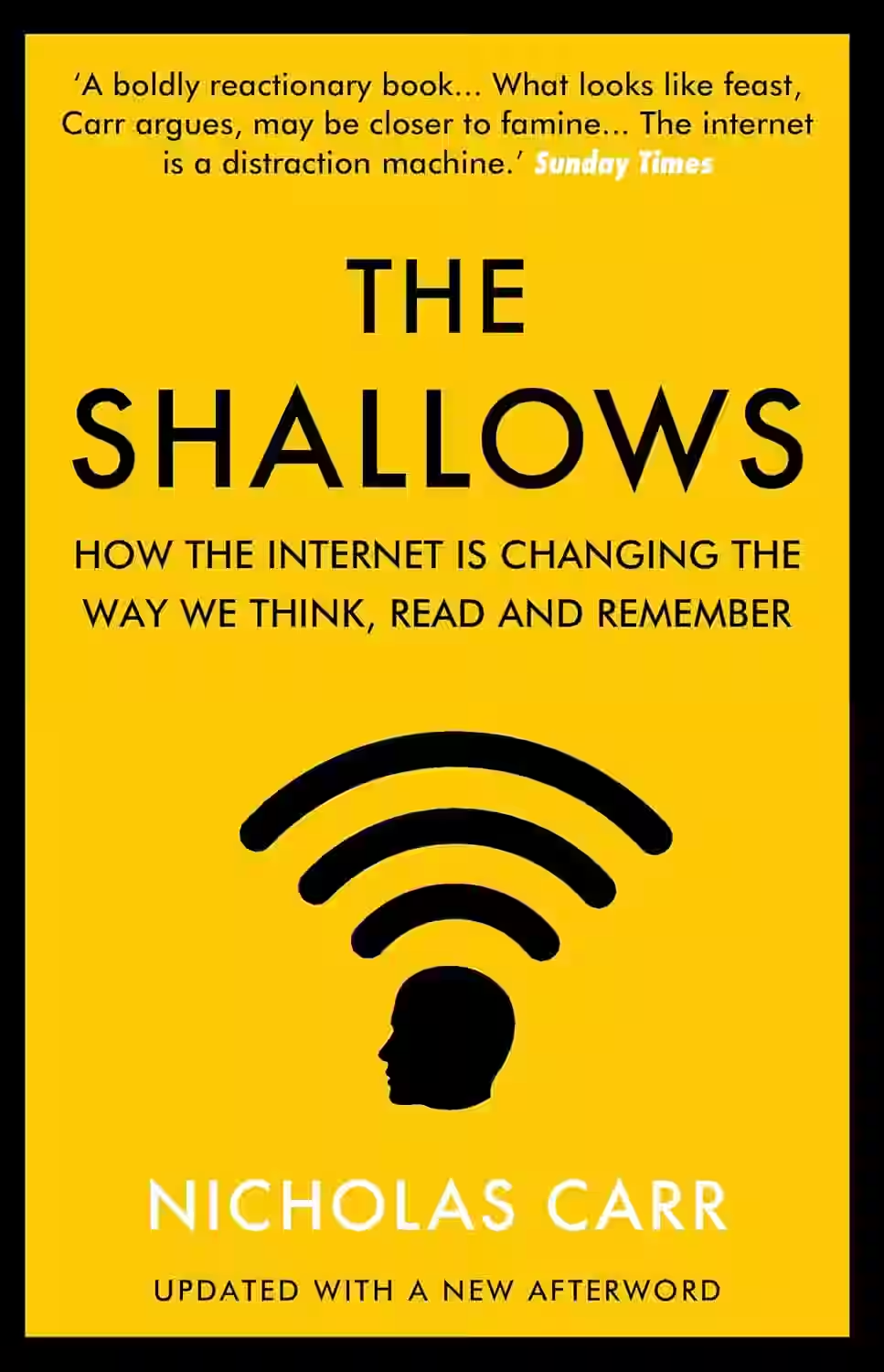
The Shallows
In 'The Shallows,' Nicholas Carr explores the profound impact of the internet on our brains and cognition. Carr argues that our constant immersion in digital technology is altering the way we think, read, and remember, leading to a shallower and more distracted existence. Drawing on neuroscience, psychology, and technology history, he delves into how the internet's constant distractions are rewiring our brains and affecting our ability to concentrate and contemplate deeply. This thought-provoking book challenges readers to reconsider their relationship with technology and how it shapes their intellectual lives.
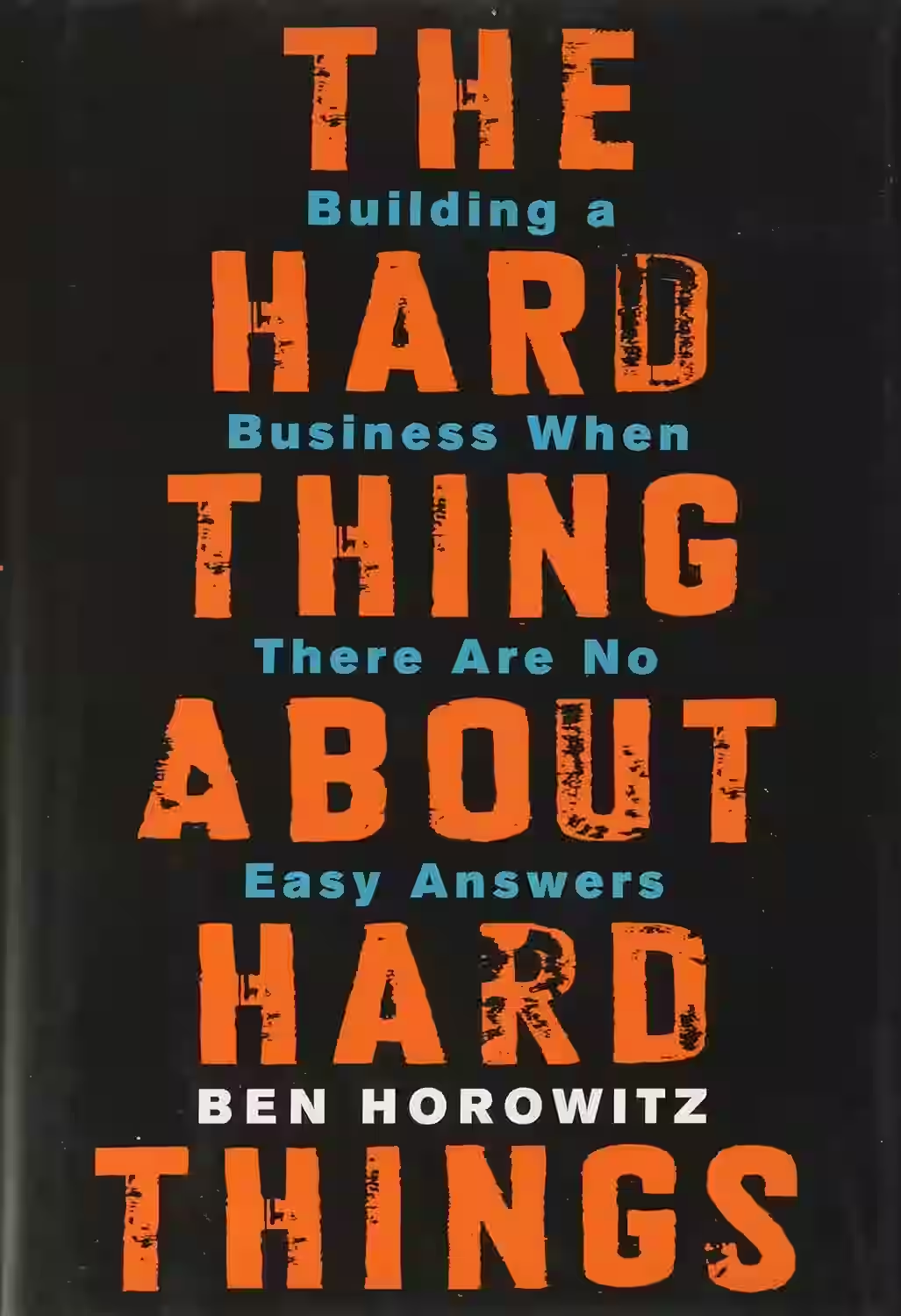
The Hard Thing About Hard Things
by Ben Horowitz
Ben Horowitz delivers a brutally honest, no-nonsense account of what it truly takes to build and run a startup. Drawing from his own experience as co-founder of Andreessen Horowitz and CEO of Opsware, Horowitz outlines the often-overlooked struggles: firing friends, managing morale, surviving downturns, and making impossible decisions. Rather than generic leadership tips, he offers hard-earned wisdom on navigating chaos and building a strong, resilient company. Larry Page praised the book for its candor and realism. It’s an essential read for entrepreneurs, CEOs, and managers who want insight into the harsh realities of leadership and long-term survival.
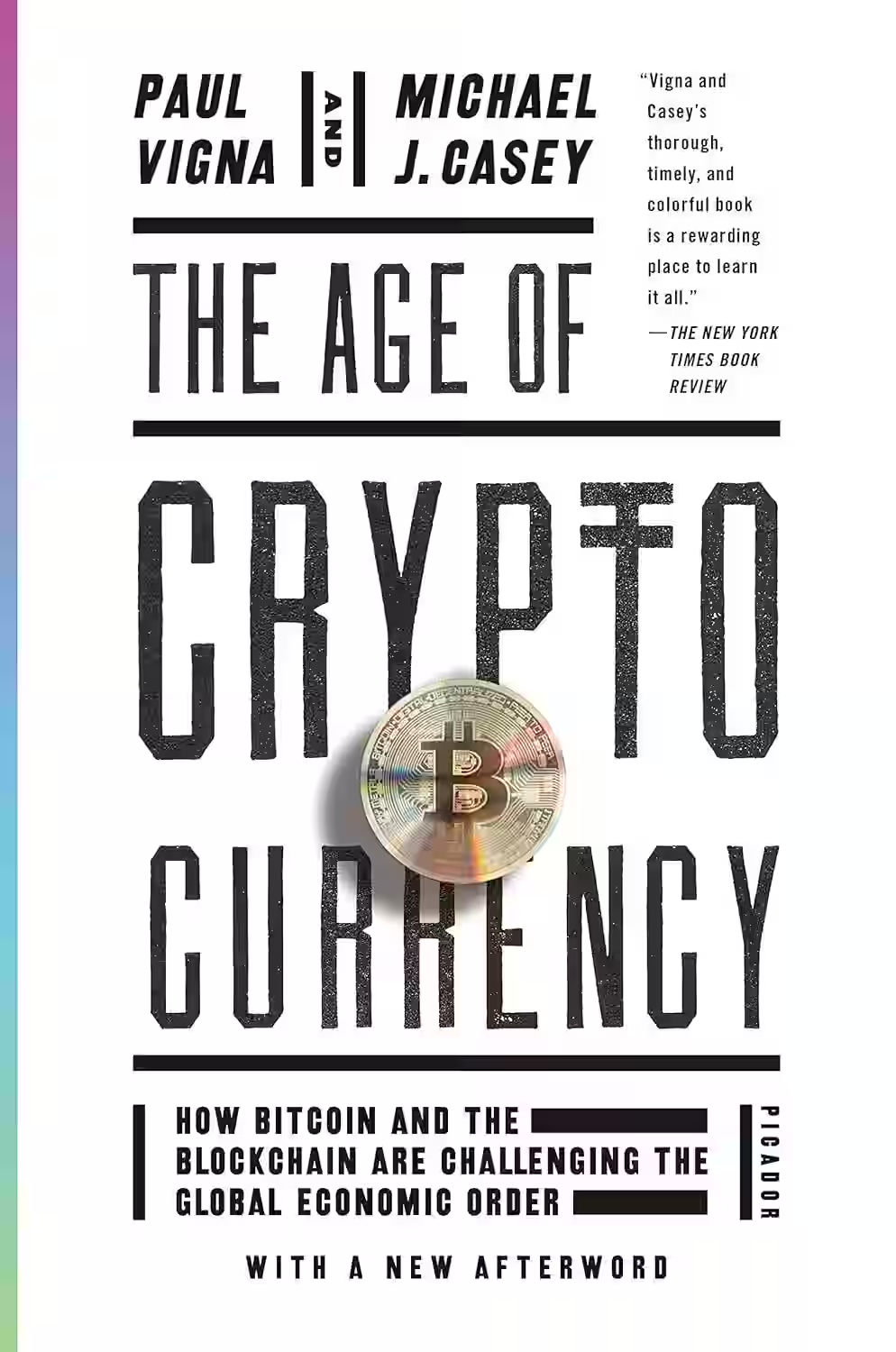
The Age of Cryptocurrency: How Bitcoin and Digital Money are Challenging the Global Economic Order
by Paul Vigna, Michael J. Casey
In 'The Age of Cryptocurrency: How Bitcoin and Digital Money are Challenging the Global Economic Order' by Paul Vigna, readers are taken on a captivating journey through the rise of Bitcoin and other digital currencies. Vigna and his co-author provide a comprehensive analysis of the technology behind cryptocurrency and its far-reaching implications on the global economy. Through compelling narratives and detailed research, the authors explore the potential of decentralized currencies to disrupt traditional financial systems and empower individuals worldwide. This book serves as a timely and insightful guide for anyone curious about the future of money and the innovative forces shaping our economic landscape.
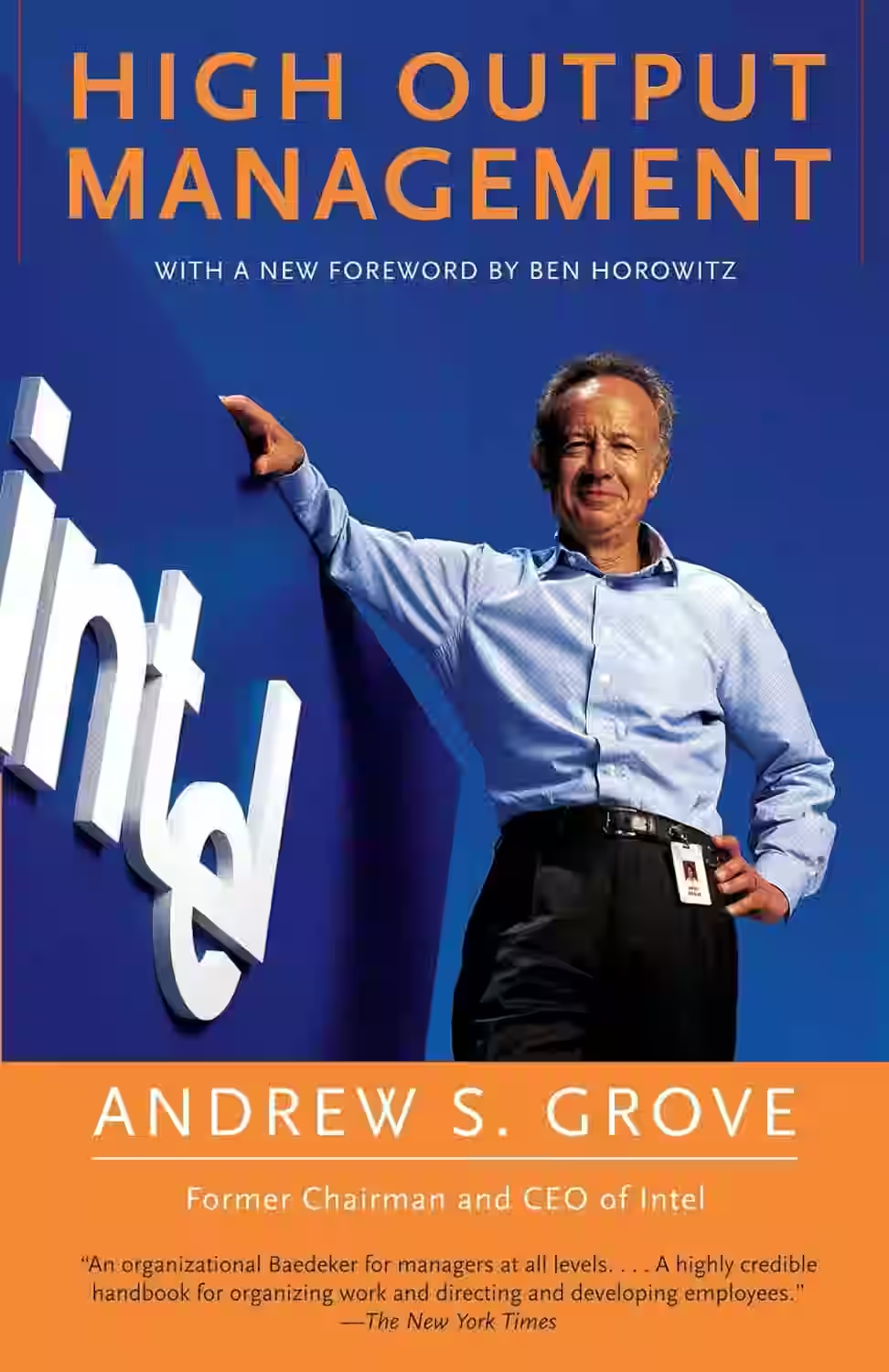
High Output Management
In 'High Output Management' by Andrew S. Grove, the former CEO of Intel shares his insights on effective management techniques. Grove delves into topics like team dynamics, decision-making processes, and how to boost productivity within an organization. He emphasizes the importance of setting clear goals, providing feedback, and fostering a culture of continuous improvement. Through real-world examples and practical advice, Grove offers valuable strategies for both new and experienced managers looking to enhance their leadership skills. This book serves as a timeless guide for understanding the intricacies of management and maximizing team performance.
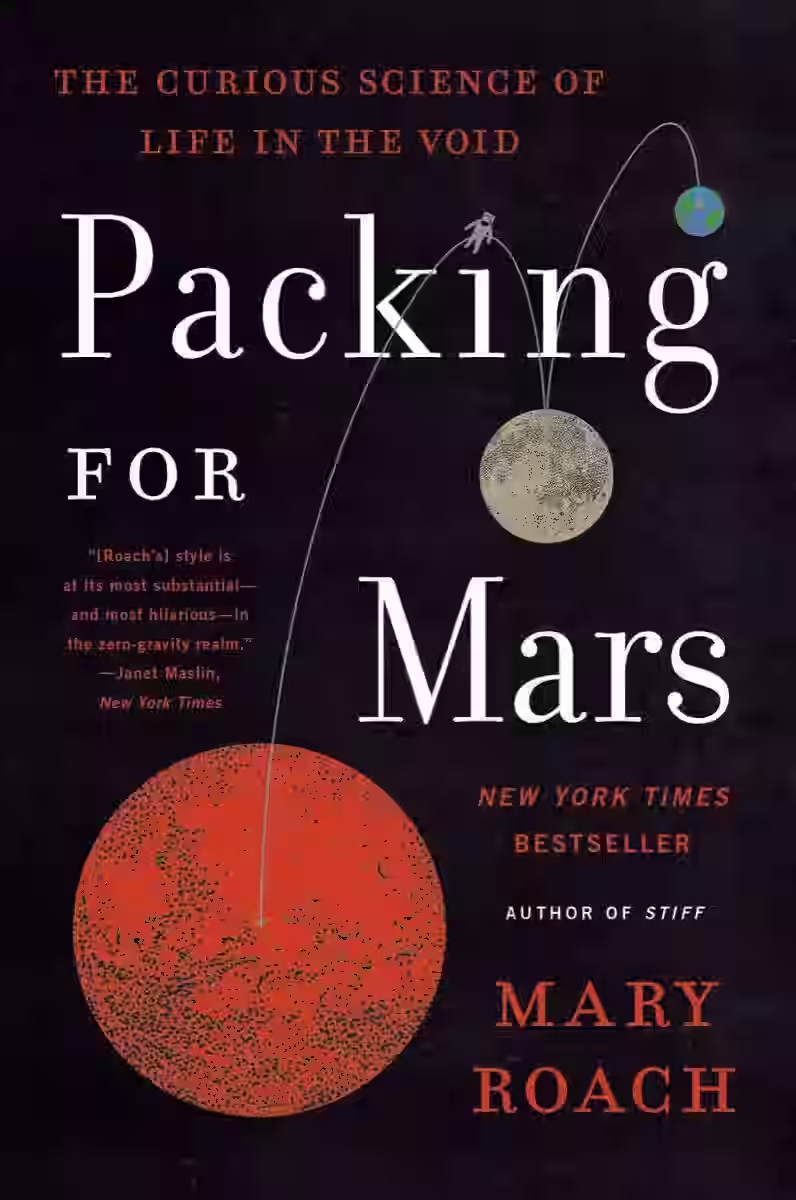
Packing for Mars
by Mary Roach
In 'Packing for Mars', Mary Roach takes readers on a fascinating exploration of the bizarre, often overlooked, yet crucial aspects of space travel. Roach delves into the challenges astronauts face, from coping with zero gravity to managing bodily functions in space. Through a mix of humor and in-depth research, she unveils the complexities of preparing for missions to Mars and sheds light on the remarkable ingenuity and dedication of the individuals working in space programs. With wit and insight, Roach examines the science, psychology, and logistics behind space travel, offering a captivating and often quirky glimpse into the world of astronauts and the unknown frontier of Mars.
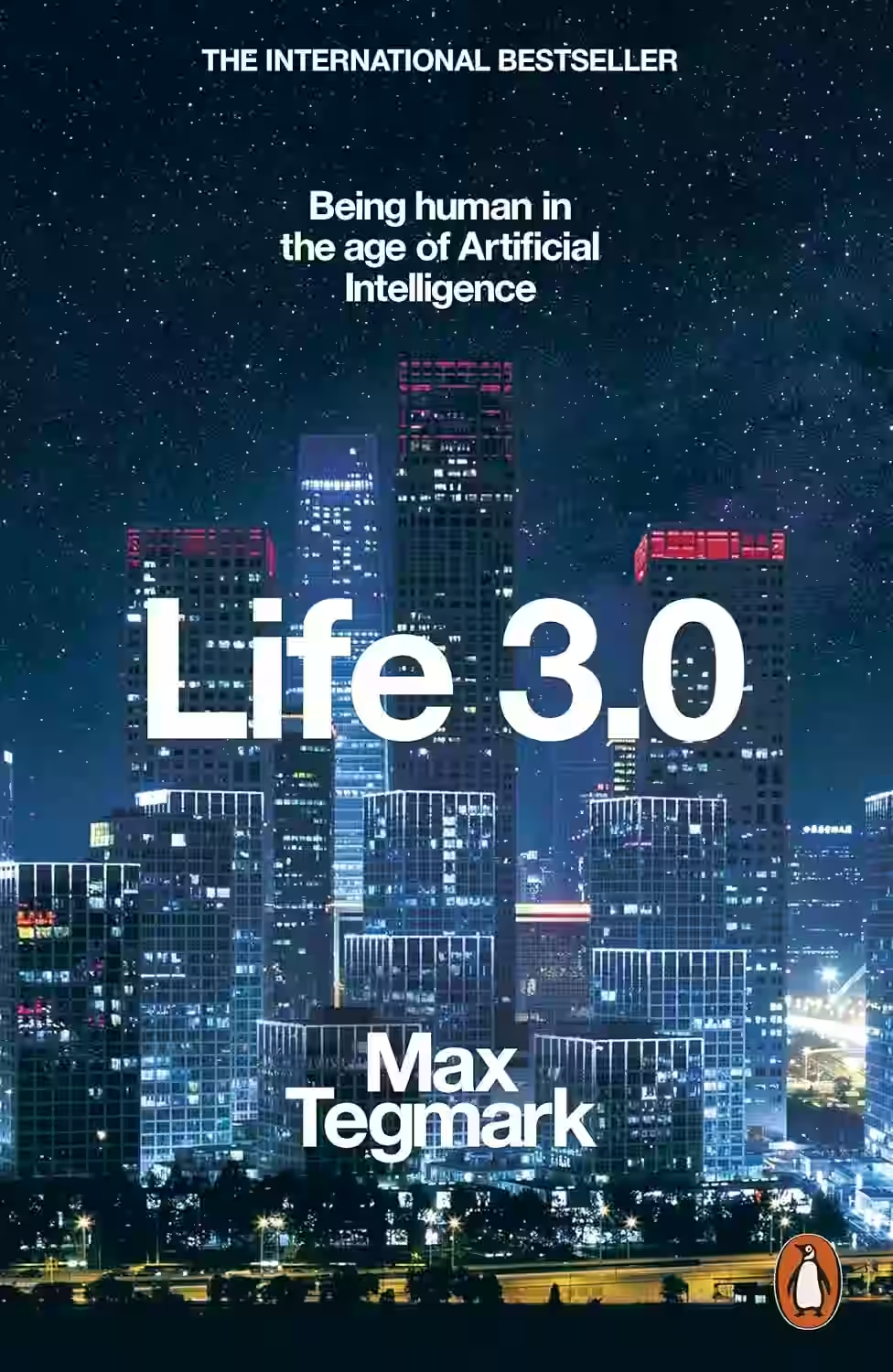
Life 3.0: Being Human in the Age of Artificial Intelligence
by Max Tegmark
In Max Tegmark's insightful book 'Life 3.0: Being Human in the Age of Artificial Intelligence', readers are taken on a fascinating journey exploring the implications of Artificial Intelligence on humanity's future. Tegmark delves into thought-provoking questions about consciousness, ethics, and the socio-economic impacts of AI. Through engaging prose and thorough research, he presents various scenarios of how AI may shape the world and challenges readers to contemplate what it means to be human in a technologically advancing society. 'Life 3.0' offers a balanced view of the promises and perils AI brings, making it a compelling read for anyone interested in the intersection of technology and humanity.

The Beginning of Infinity
David Deutsch's The Beginning of Infinity explores the boundless potential of human knowledge and progress. He argues that through better explanations and critical thinking, humanity can solve problems previously deemed unsolvable. The book delves into topics like quantum physics, philosophy, and the nature of scientific discovery, emphasizing that there are no inherent limits to what we can understand. Deutsch posits that with the right knowledge, we can achieve infinite progress, making this work a profound examination of human potential and the transformative power of ideas.
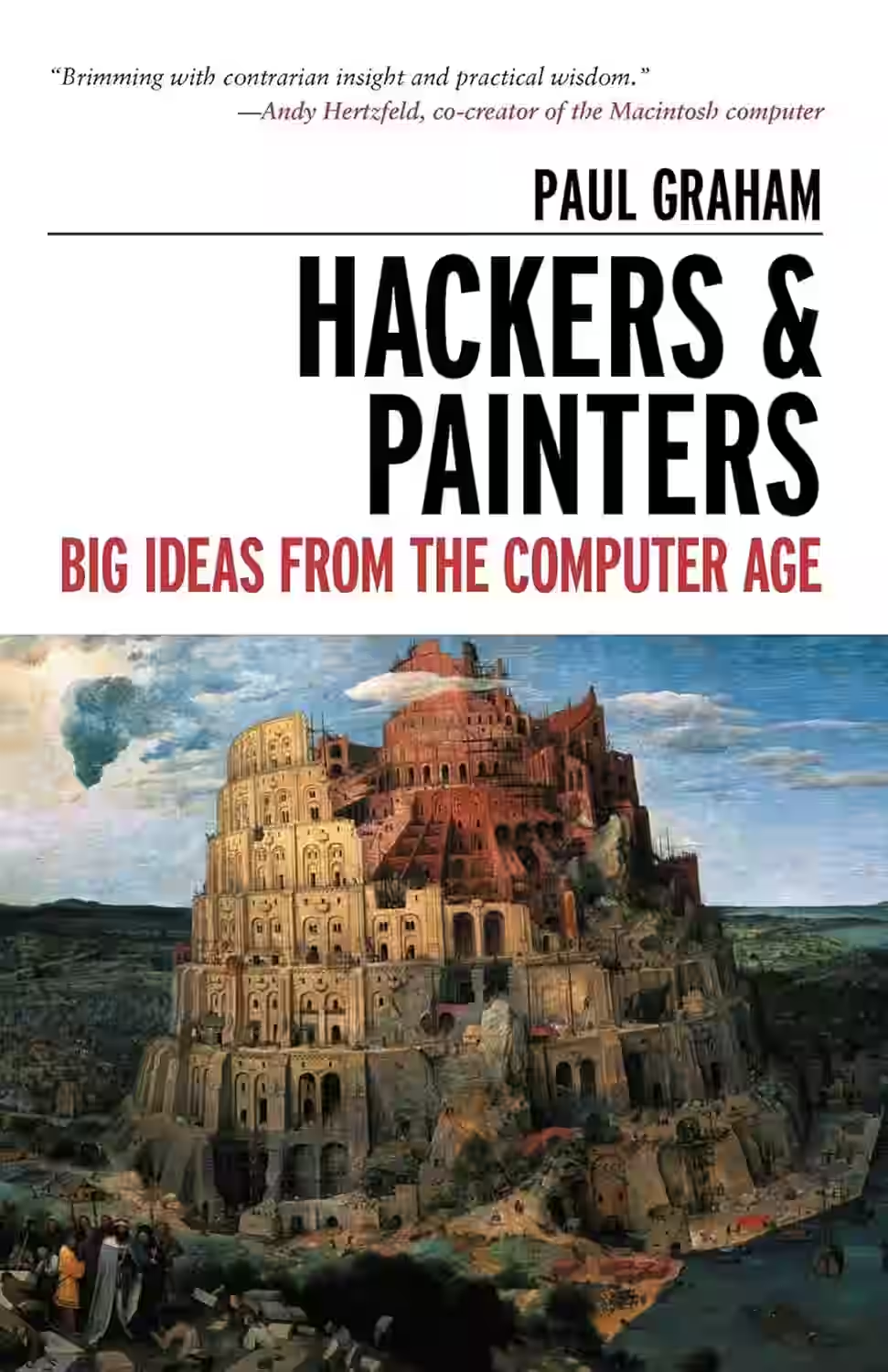
Hackers & Painters: Big Ideas from the Computer Age
by Paul Graham
In 'Hackers & Painters: Big Ideas from the Computer Age' by Paul Graham, the author delves into the intriguing world of computer programming, exploring the connections between coding and artistry. Graham discusses the hacker mindset, entrepreneurship, and the impact of technology on society. Through engaging essays, he challenges conventional thinking and offers unique insights into the tech industry. Graham's writing is accessible and thought-provoking, making complex topics understandable to a wide audience. This book is a must-read for anyone interested in the intersection of technology, creativity, and innovation.
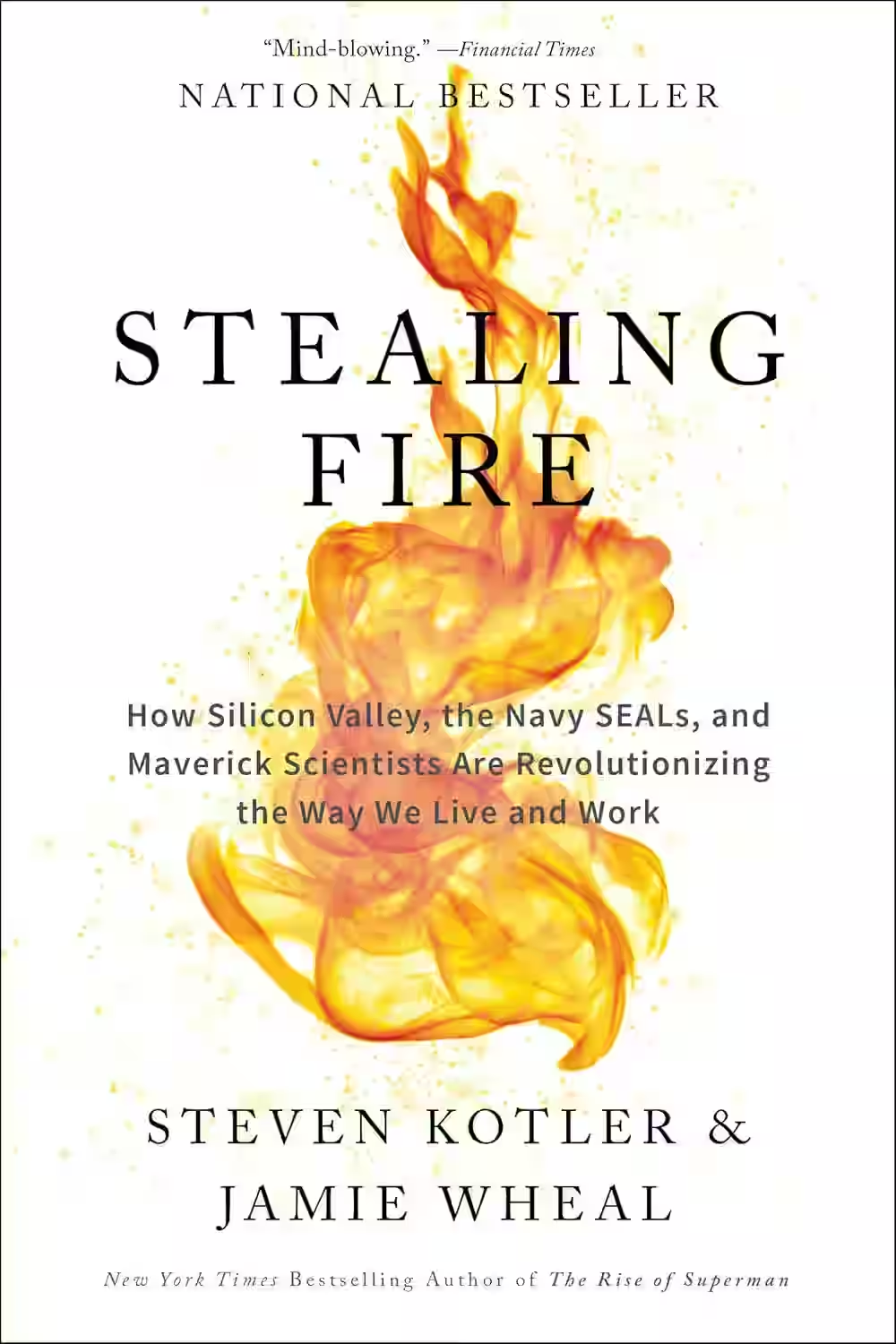
Stealing Fire: How Silicon Valley, the Navy SEALs, and Maverick Scientists Are Revolutionizing the Way We Live and Work
In 'Stealing Fire' by Steven Kotler, readers are taken on a profound journey exploring how Silicon Valley innovators, Navy SEALs, and visionary scientists are reshaping our understanding of human potential and performance. Through captivating storytelling, Kotler delves into the worlds of peak performance, altered states of consciousness, and the pursuit of ecstasis, offering insights on how these realms intersect to drive creativity and productivity in our lives and workplaces. By shedding light on cutting-edge techniques and technologies, the book challenges conventional thinking and inspires readers to tap into their untapped capabilities. 'Stealing Fire' is a compelling exploration of the frontiers of human achievement and a testament to the power of pushing boundaries.